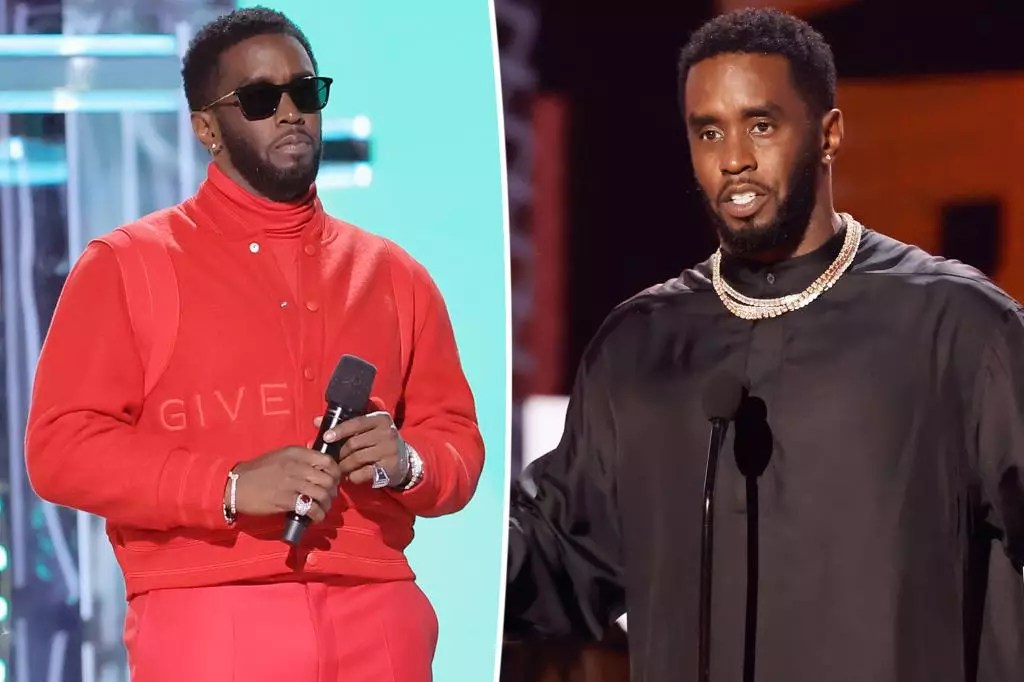The news cycle continues to whirl around Sean “Diddy” Combs as he gears up to testify in a complex case involving serious allegations of sex trafficking and racketeering. His decision to take the stand is seen not just as a legal maneuver but as a personal gamble that could either vindicate him or seal his fate. Legal experts, including renowned attorney Meesha Moulton, urge caution and skepticism regarding this bold move, highlighting the intricacies and potential pitfalls associated with a defendant testifying in their own defense.
In the realm of criminal defense, the strategy of a defendant taking the stand is fraught with challenges. While it provides an avenue for individuals to share their narratives and potentially sway jurors, the risk of cross-examination is substantial. Moulton elaborates on this by noting that entering the witness box offers prosecutors a golden opportunity to exploit any inconsistencies, anxieties, or weaknesses in the defendant’s testimony. This relentless scrutiny can shift the jury’s perception dramatically, especially if the defendant exhibits signs of frustration or confusion.
The emotional strain associated with such high-profile trials can be overwhelming. Diddy must not only contend with the legal battles but also grapple with the psychological toll that relentless questioning can impose. The ability to maintain composure under these stressful conditions may significantly influence the jury’s assessment, a factor not easily underestimated in a case filled with serious allegations.
Diddy’s attorney, Marc Agnifilo, has expressed his client’s eagerness to tell his side of the story. While this desire for narrative control is understandable, it remains to be seen whether a personal testimony will ultimately serve him well. Legal experts like Moulton emphasize that presenting a well-strategized defense ought to outweigh his inclination for personal expression during the trial.
The operative question remains: will his testimony solidify a narrative that counters the prosecution’s or will it instead provide a platform for the opposing counsel to unearth damaging implications? Moulton argues that although this approach could humanize Diddy, helping jurors see beyond the allegations by focusing on his philanthropic efforts and community contributions, it also risks introducing confusion.
If Diddy can successfully cast doubt on the prosecution’s narrative, as Moulton postulates, he may create a significant hurdle for the jury in reaching a guilty verdict. However, if his testimony fails to resonate or reveals vulnerabilities, the ramifications could be dire.
The stakes are monumental. Diddy faces a litany of charges, including racketeering conspiracy and sex trafficking, with the potential for a lengthy prison sentence if convicted. Federal agents allege that he was involved in creating a criminal enterprise that engaged in egregious actions, including coercing women and engaging in forced labor. The specifics of the case paint a troubling picture characterized by a history of alleged abuse, further complicating the narrative that Diddy seeks to challenge.
Compounding the complexity of his situation is the evidence gathered against him, which reportedly includes disturbing finds during recent raids of his properties. The revelation of items such as baby oil and lubricant in connection with these alleged illicit gatherings or “Freak Off” parties serves to heighten the severity of the allegations. Furthermore, the details of how staff were allegedly instructed to manage the aftermath of such events add layers to Combs’ mounting legal nightmares.
As Diddy prepares for his upcoming trial, which remains unconfirmed in terms of date but is marked by a status hearing scheduled for October 9, the pressure mounts. Every decision he makes, including whether to testify, is a pivotal point that could alter the course of his future. Maintaining a strategic defense seems paramount, and the insight from legal experts provides valuable context as he navigates this turbulent landscape.
While there’s no denying the allure of proclaiming one’s innocence in court, Combs’ approach to his testimony will be scrutinized not only by legal professionals but also by the public and jury. There lies an undeniable complexity in balancing the desire to share his narrative with the daunting challenges that come with doing so. Ultimately, this trial isn’t just a legal battle; it’s a crucial juncture in the life of a figure who has long been woven into the fabric of popular culture. How this intricate play unfolds will undoubtedly make waves that extend far beyond the courtroom.







Leave a Reply